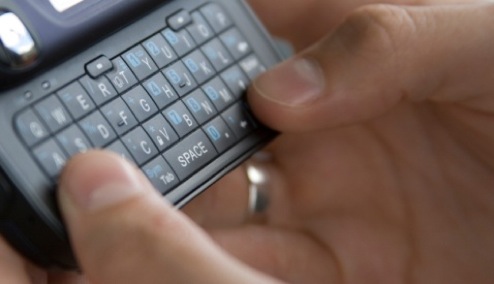 A while back, I commented on the text-message generation. But this story caught my attention.
A while back, I commented on the text-message generation. But this story caught my attention.
I have long understood that the cell phone/text message iteration of our culture is more broadly implemented in places other than our United States….indeed, countries like Japan and the European collection generally have more phone technology and use that phone technology more widely than we Americans do.
Examples (from the link above):
If you live in the United States it can be difficult to understand the role mobile phone technology plays across the globe. Here, you may use your phone for calls and messaging, perhaps for some computing lite, but likely little more. In Senegal, however, farmers are using phones to track crop prices, in Japan, writers are SMSing whole novels, and in Sweden, they’re texting to apply for instant loans. An app that lets you kill time on the subway, this is not.
Within a year and a half, half the world will use cellphones, predict analysts, and with the bulk of new users emerging from developing nations, the question of what phones can do for their owners has never before had such potentially world-changing answers.
…
Enter Nokia and Dean Kamen.
…
Kamen has recently completed a field test of two inventions that he hopes will change the world. Both are based on Stirling engine technology: one is a water purifier, the other an electrical generator. “Cancer, diabetes, all those diseases, that’s 50 percent,” says Kamen. “The other 50 percent of all disease is caused by bad water. Getting clean water to people would knock out 50 percent of all disease.”
Each purifier and generator provides enough power and water for a village; but, with one million villages in India alone, deployment is a challenge. In the past, Kamen has worked with multinational companies to launch his inventions, but the top-down approach of a big company doesn’t mesh well with the million-village scale of this project.
The developing world has a high number of cell phones per capita — the counterpoint to having very little in the way of landlines — and the idea is that software running on Nokia’s platform could be used to network and control a village’s small-scale power and water supply.
Hence the contest. Kamen is hoping to tap the expertise of mobile software developers — for instance, the three million of them enrolled in Nokia’s “Forum Nokia” community — to provide the infrastructural glue that will help get his inventions to the people who need them. Like Tim O’Reilly, Kamen hopes that developers, properly motivated, will pour some of their efforts into projects that help the world instead of endless widget toys and games.
It’s an inspiring idea.
Then there’s the revelation (already understood by pollsters) that 12% of the US population is available only through their cell phone, and that number is going to continue to go up.
Imagine a culture where everyone is available through their mobile phone/device/pda, and that important personal activities are able to accomplished via text-messaging (or whatever it evolves into), as the first link states. Mortgage applications, loan applications, voting, shopping, school, all processes and institutions that require a physical presence, a physical location, block and mortar. A truly mobile society, connected to each other not by roads and physical addresses but by ip addresses. Available all the time, from anywhere in the world.
Could it be?
hmmm, I’m going to hold off on supporting that. I don’t know that I want to be available all the time from anywhere in the world 🙂
What’s up everybody, here every one is sharing these kinds of know-how,
so it’s good to read this blog, and I used to pay a visit this blog daily.